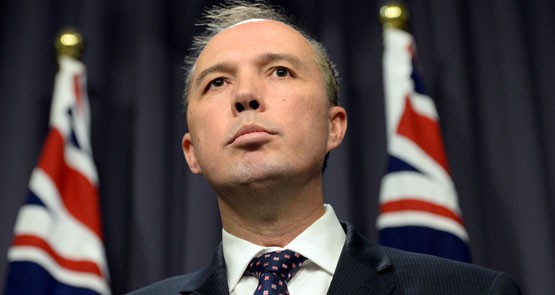
Up to 267 asylum seekers could be sent back to Nauru from Australia in a matter of days after the High Court ruled in favour of the Australian government over a challenge to Commonwealth funding for offshore detention centres.
The case centred around a Bangladeshi asylum seeker fighting against being returned to the Nauru detention centre. Her boat was intercepted by Border Force in October 2013, and she was detained on Christmas Island and Nauru before being transferred to Brisbane for medical treatment in August 2014, where she gave birth to a daughter.
The Human Rights Law Centre, acting on behalf of the woman, sought to prevent her return to Nauru and challenged whether it was constitutional for the government to send people from Australia to a foreign country to be detained in centres funded and effectively controlled by the Australian government.
Now 267 people, including 37 babies and 54 other children, could be sent back to Nauru within three days as a result of the decision.
The High Court, by majority, found that signing a memorandum of understanding with Nauru to bear the costs of holding and processing asylum seekers in detention in Nauru was authorised under section 61 of the constitution, and that the Transfield Services contract for services on Nauru was authorised under the Migration Act. The judgment came down to a 6-1 majority, with only Justice Michelle Gordon dissenting.
The government’s hasty move in June 2015 to pass a law to ensure that it’s offshore detention policy was legal appears to have paid off. Justice Stephen Gageler pointed out that, without the amendment to the Migration Act in 2015, the government would have been acting beyond its power by detaining the asylum seeker in offshore detention to retrospectively make her detention legal.
“I consider the plaintiff’s central claim (that the Commonwealth and the Minister acted beyond the executive power of the Commonwealth by procuring and enforcing her detention at the Regional Processing Centre between 24 March 2014 and 2 August 2014) to have been well-founded until 30 June 2015, when s 198AHA was inserted with retrospective effect.”
The government had argued its case against the challenge based on the fact that the government of Nauru, one week before the hearing, announced it would make its detention centres in Nauru “open centres”, with asylum seekers free to come and go, 24 hours a day, seven days a week, and would quickly process the outstanding 600 asylum seeker claims in the next week.
Although the “open centre” arrangement is effectively in name only — with asylum seekers still required to live in detention centres and restrictions reportedly being placed on what they can take in and out of the centres — the Australian government was clearly relying on this new open centre arrangement as part of its argument in the High Court. And as for processing those 600 outstanding asylum seeker claims, at the end of December last year there were still 537 people in “open detention” on Nauru.
Last year Crikey revealed that while the government was playing dumb about the change to the detention centre arrangements and insisting it had only become aware of the public announcement given by the Naruan government on October 2, an internal document from the DIBP stated that on October 1 the Australian government had approached the High Court to inform the court about the Nauruan government’s “decision to expand the open centre arrangements”.
Immigration Minister Peter Dutton is facing pressure to intervene and stop the children in particular from being sent back to Nauru. The government is expected to comment later in the day, but on ABC’s Lateline program last night, the minister said it was still likely that the 267 people in Australia will be sent back to Nauru. In the case of a five-year-old boy who was allegedly raped on Nauru, Dutton said that the government would consider medical advice on whether he should be returned.
Shadow attorney-general Mark Dreyfus said that when Labor re-established offshore detention, it was never intended that asylum seekers would be left to “languish” in centres, but he stopped short of calling for an end to offshore detention.








Oh goody its ‘ legal’ to establish gulags in foreign lands that have been shown to cause harm and trauma to the poor souls who sought our protection. This must be a proud day for Australia! Not only have we stopped the boats and the drownings at sea we’ve managed to start a new game with refugees lives called ‘ die in that hellhole or go home’ But hey.. no more drowned people. The rank stench of hypocrisy from this government makes my eyes weep
It’s time to remove that foreigner from the UK from section 61 of the constitution. And every other bit where she’s referenced, too.
It must be disappointing for you and your Fellow Travelers to find the Judges haven’t accepted your quaint ‘interpretations’ of Justice?
If only the Crikey Commissariat Censor had more control of the Judiciary it would be more enjoyable for you, wouldn’t it.
Meanwhile back at the High Court..
Once it is understood that it was Nauru that detained the plaintiff, and that the Commonwealth did not and could not compel or authorise Nauru to make or enforce the laws that required that the plaintiff be detained, it is clear that the Commonwealth did not itself detain the plaintiff……..”I’ve a feeling we’re not in Kansas anymore.”
And here is the problem, plain & simple “Shadow attorney-general Mark Dreyfus … stopped short of calling for an end to offshore detention.”
Isn’t bipartisanship wunnerful?